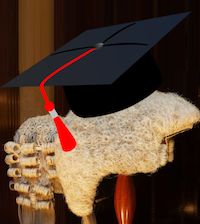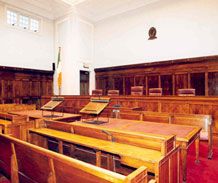The Judicial Appointments Commission Bill: guiding principles and the eligibility of academics
 The Tánaiste and Minister for Justice has today published the Scheme of Judicial Appointments Commission Bill 2016 (press release | Scheme (pdf)) to deliver on the commitments in the Programme for a Partnership Government to reform the system for judicial appointments. The Scheme provides for a new Commission for Judicial Appointments, including a lay chair and a lay majority. The lay members of the Commission will be selected by the Public Appointments Service, which will also select the Chairperson. The Commission will make recommendations to the Government for appointment to judicial office, and a sub-committee of the Commission will prepare codes of practice dealing with selection processes.
The Tánaiste and Minister for Justice has today published the Scheme of Judicial Appointments Commission Bill 2016 (press release | Scheme (pdf)) to deliver on the commitments in the Programme for a Partnership Government to reform the system for judicial appointments. The Scheme provides for a new Commission for Judicial Appointments, including a lay chair and a lay majority. The lay members of the Commission will be selected by the Public Appointments Service, which will also select the Chairperson. The Commission will make recommendations to the Government for appointment to judicial office, and a sub-committee of the Commission will prepare codes of practice dealing with selection processes.
This is a thoroughly welcome development, which I will analyse in detail on this blog at a later date. For now, in this post, I want to focus on two innovations, relating to guiding principles to apply in the judicial selection process, and to the eligibility of academics. …

